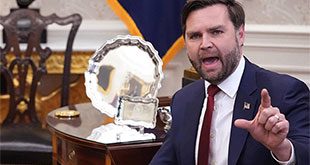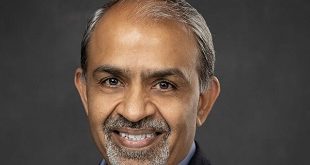
By Patrick Kagenda
Greed, intrigue, backstabbing at KCCA
Besieged Kampala Lord Mayor Erias Lukwago is clear. “As KCCA reaches out to Kidandala, they are creating a more complex situation,” he says, “They are now entangled in the very net they laid for me and the more they try to wriggle out, the tighter it becomes for them.”
But the man being courted by KCCA as new lord mayor, Sulaiman Kidandala has a different view. “What is happening today at KCCA is not a takeover of the lord mayor`s position but we are putting right the part that was remaining.”
The real twist in this tale is that Kidandala has until now been on Lukwago’s side. So what has changed?

To explain the change requires going back to the day Lukwago was elected on January 14, 2011. From that moment, Lukwago knew he would be operating behind enemy lines because, of the 31 division councilors he would be working with at City Hall, 20 were from the ruling NRM party. And it did not take long after he was sworn-in on May 20, 2011 for the NRM majority to throw its weight around. They told Lukwago, who ran as independent but is associated with the opposition Democratic Party (DP), not to dare appoint a deputy lord mayor from his minority supporters and gave him two NRM names to choose from. Lukwago had a choice; to either retreat, surrender, and appoint an NRM deputy or fight. It took him six months to reveal his decision. In October 2011, he appointed his long-time colleague in DP, Sulaiman Kidandala, as his deputy. The message was clear.
Lukwago’s choice did not surprise those who know him well. He is a passionate man for whom fighting for what he believes in is not a choice but an instinct. But by appointing a fellow DP and fellow Muslim, commentators noted, Lukwago had played a weak political hand that isolated him more even within his minority group.
But Lukwago, who is an astute lawyer, possibly calculated that apart from having the KCCA Act 2010 behind him, he could in fact gather political points by posturing as the defender of the views of the massive opposition electorate. What he plotted was the political fight city residents and the country have witnessed since then.
Kidandala’s role
Although KCCA under the no-nonsense Executive Director Jennifer Musisi has performed quite well at the technical level, Lukwago has successfully stymied it politically. As if entrapped by a master puppeteer, KCCA has appeared unable to free itself of Lukwago.
By enlisting Kidandala, KCCA now hopes it has devised a new strategy to finally end Lukwago’s political stranglehold on the authority.
Lukwago’s erstwhile battle-buddy, Sulaiman Kidandala’s dining with the enemy first emerged in April when leaked recordings exposed Kidandala and the NRM-allied Inspector General of Police, Gen. Kale Kayihura plotting how to undermine Lukwago.
In the taped recordings, Kidandala reveals how he favoured working with the NRM and asks Kayihura for Shs6 million that he is given.
Since that moment, Lukwago has haboured no illusions about Kidandala’s loyalty. But he remained unshaken because, in his calculation, he holds an upper hand in the stalemate that has persisted at KCCA.
Although he has been locked out of office since November 25, 2013 when he was purportedly impeached in a move that has spawned a slew of legal suits and countersuits, Lukwago calculated that KCCA Executive Director Jennifer Musisi and her team of technocrats cannot fully function without a lord mayor who is the constitutionally designated head of the authority.
Mostly, the KCCA dysfunction has been aesthetic, as shown during London Lord Mayor, Fiona Woolf’s visit to Kampala in mid-September. Question must have been asked about why she could not meet with her counterpart for Kampala.
But at other times, the lord mayor’s absence and resultant failure of the KCCA councilors to meet has created practical problems; for instance, regarding the passing of the Authority budget or how to sign invitations to the ongoing Oct.1-3 Future Cities Forum (FCF) in Kampala. The event organisers invited over 150 mayors who inevitably will ask questions about their missing Kampala host.
It is for these reasons that KCCA councilors, technocrats, and Minister Frank Tumwebaze, appear determined to have Kidandala function like a substantive lord mayor.
It has since emerged that the Kidandala move came up in events surrounding the recent closed-door strategy retreat of KCCA councilors, technocrats, and Minister for KCCA Frank Tumwebaze on Sept. 18 in Entebbe. Everybody denies it, possibly because it represents the kind of opportunistic politics that is becoming common at City Hall. For the Frank Tumwebaze group, however, dining with Kidandala is the equivalent of realpolitik dealing that they had hoped Lukwago could cut.
Legal technicality
By pushing Kidandala to grab Lukwago’s seat, the Tumwebaze group are counting on Section 9 of the KCCA Act 2010 that gives the Lord Mayor mandate to appoint a deputy lord mayor who, in the absence of a lord mayor, shall carry out the duties of the lord mayor. But there is a catch.
When Lukwago appointed Kidandala in 2011, the same group around Tumwebaze rejected him. The matter went to court and, even if Kidandala was finally sworn-in, first in December 2011 and again in August 2012 by Buganda Road Chief Magistrate Sylvia Nabaggaala, the KCCA technocrats led by ED Jenifer Musisi refused to recognise him. They refused to pay him and say the minutes of the council meeting that appointed Kidandala were not signed by the lord mayor. Now, they say, unsigned minutes are a minor legal technicality. However, with the lord mayor locked out of office, the minutes cannot be signed.
But it will be recalled that when Lukwago first nominated Kidandala on October 19, 2011, the same NRM councilors went to a tribunal challenging Kidandala`s nomination because it had no minute by a council seating. Without the signed minutes, therefore it appears, Kidandala cannot be deputy lord mayor. But, to compound the cul-de-sac, Lukwago; upon learning that the powers at KCCA were scheming to install Kidandala, called a press conference and sacked him.
The validity of the sacking is unclear, just as is the argument that since the Supreme Court upheld the ruling of Justice Stephen Kavuma that the lord mayor be kept out of his office, it meant that his `deputy’, Kidandala would assume the role as envisaged in the KCCA Act.
The argument now is that Kidandala is deputy lord mayor by virtue of being legally nominated on June 20, 2012, approved by the council, and sworn in by the Buganda Road Court Magistrate Sylvia Nabaggaala on August 7, 2012.
With another election looming in 2016, councilors are divided over which direction to take.
“We have seen a U-turn right from the ED Jennifer Musisi, Minister Frank Tumwebaze and the councilors who earlier had blocked Sulaiman Kidandala from assuming the office of deputy lord mayor recognising him as the substantive deputy Lord Mayor,” says Aidah Nakuya; a councilor representing the youth, “The Authority and the minister feel what they did to impeach the Lord Mayor was wrong and they are trying to create a filler.”
Nakuya says the current frenzy is all about money. “The councilors who recently went to Entebbe are using the impeachment of the Lord Mayor as bait to keep getting money. In fact one councilor told me and my other colleagues that to her it is all about money not the electorate or building bridges in Kampala,” she says.
She adds: “All the councilors are focusing on now is the Kidandala issue because it has money on it and they all have turned into money chasers which Lukwago had refused to buy people to talk on his behalf.
“Because of money, councilors have been diverted from the real issues which are the ongoing purchase of the Usafi Market at Shs39 billion and the recently passed KCCA budget of Shs200 billion. No one is looking at how that money will be used yet it is a lot of money. Nakuya says because KCCA pays them their retainers, gives them sitting allowances for all the authority meetings and also facilitates them for their mobilisation work, councilors are not bothered at what is taking place at the Authority.
Allan Sewanyana, the staunch pro-Lukwago councilor from Makindye West says Kidandala has since the beginning of this year been meeting government officials including the attorney general, minister for Kampala, ED Jennifer Musisi and others.
“Government`s move is a result of realising its mistakes and wanting to find a way of legitimising its impeaching of the lord mayor. By wanting to use Kidandala to fight Lukwago, government would have bought time till the next election due in 2016. The only option now is for government to swallow its pride and return the dully elected lord mayor,” Sewanyana says.
But some councilors, like Bruhan Byaruhanga of Kyambogo University, prefer the more traditional spin to the tale.
“What is happening and being said that Kidandala has been bought by government (NRM) is a creation of the opposition which wants to find ways of remaining relevant in the politics of Kampala which has slipped out of their control,” he told The Independent.
Kidandala is also full of denial.
“I have never received any money from government or anyone. The allegations that I have been hobnobbing with Gen Kale Kaihura is because he as the IGP, he is head of the police. I met him to ask him tell his men change the way they treat the lord mayor and the people of Kampala in general because they were very brutal to all of us,” he told The Independent in an exclusive interview.
As usual, truth-telling is a rarity amidst such accusations and counter-accusations. But one thing is clear; when the KCCA councilors purported to impeach Lord Mayor Lukwago in November last year, they created a legal and technical labyrinth that will not find easy to untangle.
More : Lukwago on KCCA and Kidandala
Chances of Lukwago returning are very slim
 The Independent Uganda: You get the Truth we Pay the Price
The Independent Uganda: You get the Truth we Pay the Price



